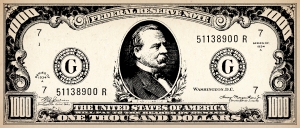

The United States has got a system which brings rise to patent trolls by the nature of patents it breeds and legal process which harbors these. Here is a new rant about this system:
We have an incentive system at work in the apps ecosystem. Angry Birds has been downloaded one billion times, Temple Run more than 150 million. Other developers see the potential for great financial reward with their work, which encourages further development, risk taking and invention. This benefits not only developers but also smartphone owners and our economy.
Ideally our patent system would be humming alongside this app freight train, rewarding original and unique ideas, conferring exclusivity on the truly novel. Unfortunately, it has been doing the opposite in many cases, creating undue burdens on this vibrant sector due to a few bad actors. Developers have grown fearful of receiving letters from patent trolls seeking nominal license fees for seemingly unrelated patents, written long ago in many cases.
Our system facilitates, even encourages, the two business models of patent trolls. Some trolls seek overly broad patents and pursue large tech companies for hefty paydays. Other trolls seek similarly weak patents, but choose thousands of small tech companies as their quarry, seeking seemingly small “license” payments. With both types the initial math is simple: convince the target company that fighting in court is hundreds of times more expensive than merely licensing the dubious patent, even if you win.
Beloved podcasts like the Adam Carolla Show and HowStuffWorks are under attack. They and other podcasts are getting sued for, well, podcasting. And they're not the only victims—developers are being targeted for building mobile apps, and offices around the nation are being attacked for using ordinary networked scanners. These creators are only a few of the thousands of victims of one of the biggest threats to innovation: patent trolls.
Patent trolls are entities that don't create products themselves, but instead buy patents and make money from lawsuits. Trolls often make broad claims of infringement based on patents of questionable validity, and most defendants choose to settle because of the outrageous nature of patent litigation. It is risky and expensive—and trolls offer settlement amounts that, although incredibly burdensome, are cheaper than a lawsuit, which can often cost well into the millions of dollars.
Techdirt has been writing for a while about China's policy of providing incentives to file patents -- regardless of whether those patents have any worth. That's led to a naïve celebration of the large numbers now being granted, as if more patents corresponded to more innovation.
Until now, this problem of junk patents has been confined to China, and the companies that operate there. But last year China went even further with its subsidy system, offering to pay the fees for filing overseas, presumably to encourage Chinese companies to build up patent portfolios in foreign markets that can be used for defensive or even offensive purposes. We're now beginning to see the effects of this further distortion to the patent system, as Australian businesses struggle with the flood of new patents there.
But in an interview with CNET, one of the bill's co-sponsors says that this time the political winds are more likely to favor passage.